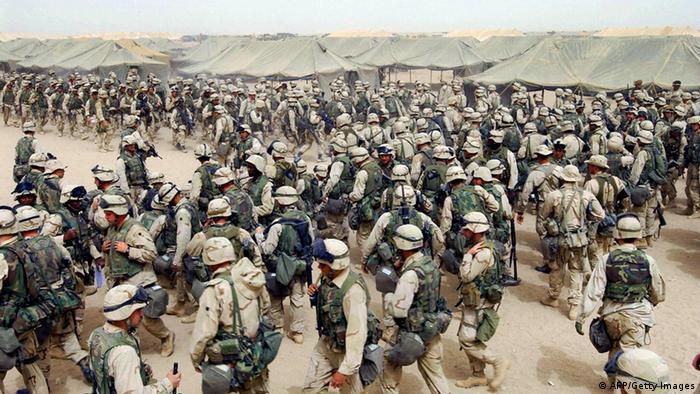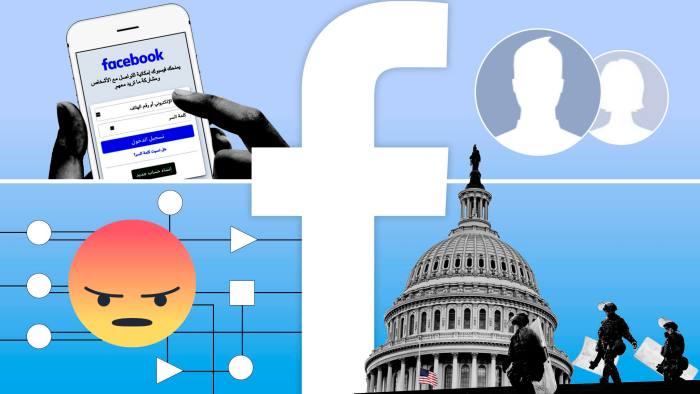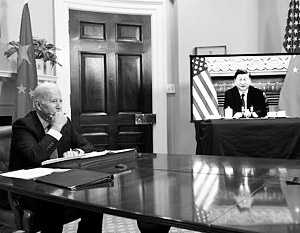
A Stomping Ground of the US-Iraq Invasion
On my third turn around the block, I found a girl sitting at a small table that one of the booksellers, a friend and former sailor by the name of al-Basrawi, had provided for her. Some young men had gathered around her, but she knew a little Arabic, although she was proficient in English, a curiosity that prompted me to approach her. She asked someone in somewhat comprehensible Arabic, “What is your name? Are you Muslim or Christian?” The person answered, “I am a Muslim.” She asked him again, “Are you a Sunni or a Shiite?” “Shiite,” he replied. And she asked him a third question: “What do you think about liberating Iraq from dictatorship?” The man said, “Good! We were liberated from the tyrant with the help of the American liberation forces.” And then she turned and asked the same questions to others.
I approached her, and she smiled at me, and said, “What's your name?” So, I told her that I would answer in any language she wanted, in English, perhaps as she might not understand the meaning of certain Arabic words. She leaped with joy and said that few here are fluent in English, and I repeated the question. I asked her if she was Christian, Buddhist, or Confucian. Surprised by the question, she said, “I am Japanese.” I told her I knew she was Japanese, but I wanted to know what her religion was. She said that she was only Japanese. I asked her that if she found it embarrassing to disclose her religion and considered it private how she could interfere in the privacy of others?” She said that she did not force anyone she met to answer, that they answered immediately without hesitation and with complete impunity, and that no one objected but me. I told her she had spoken the truth, and that it is our fault not hers. She asked if I wanted to speak in private since she had a lot of questions she wanted me to answer, and I told her I had no objection.
The al-Shahbandar Café is located at the end of the street, and the café is dedicated to writers, poets and intellectuals in general. In the café, I asked her who she was and she introduced herself as Eita Endo, a graduate student at Osaka University who was writing her thesis is on the liberation of Iraq. She is doing research and listening to people who were liberated from a tyrant, because political leaders are known for taking positions and making statements. She already understood those positions by the Iraqi, Arab and foreign media, which consist of repeated phrases about the liberation of Iraq and getting rid of the oppressive regime as if they were speaking in one voice.
I introduced her to myself briefly. I am an Iraqi writer, holder of two bachelor’s degrees and a higher diploma equivalent to a master’s. I have published hundreds of articles in the most prominent Iraqi and Arab newspapers and, at the time, have published two books and had five manuscripts that had yet to be published. As for my religion, as she had described herself, I am Iraqi only. She laughed and said she would not ask me that question because she already knew the answer. But she wanted me to tell her about the liberation of Iraq from dictatorship, how I felt before and after the liberation, and whether Iraq was on its way to democracy, as we hear from the American and Western media. “I have learned that my country contributed to the liberation process via humanitarian and medical aid, not militarily, as you know,” she said.
I told her she seemed to have confused some concepts, for liberation is not achieved through conquest, and democracy is not a commodity to be exported and imported. A unilateral decision was taken by President George W. Bush. The justification for the invasion was not the liberation of Iraq and its leadership in the name of democracy, but rather the search for weapons of mass destruction, a lie that the United States and Europe promoted to invade Iraq, and which has been proven wrong. United Nations Secretary-General Kofi Annan declared that without obtaining a decision from the Security Council, military action against Iraq would be illegal, but the United Nations, after America put pressure on the United Nations secretary-general, changed its position.
This is what has been said about the Iraqi regime’s relationship with al-Qaida, when Secretary of State Colin Powell admitted in January 2004 that he had not seen solid or tangible evidence or even any hint of something to support the Bush administration’s assertions of a relationship between Saddam Hussein and al-Qaida. As former Coordinator for Infrastructure Protection and Counterterrorism Richard Clarke testified before the 9/11 Commission on March 24, 2004, Bush tried hard to link Iraq to the 9/11 attacks. It had been found that the suicide pilots received their training at American flight schools in Florida, Arizona, Oklahoma and Minnesota. On Oct. 24, 2001, Bush issued a list of 11 terrorist organizations — al-Qaida, the Abu Seif Group, the Armed Islamic Group of Algeria, the Hizbul Mujahideen, the Egyptian Islamic Jihad, the Islamic Movement of Uzbekistan, the Osbat al-Ansar, the Salafist Group for Preaching and Combat, the Libyan Islamic Fighting Group, the Islamic Courts Union, and the Aden-Abyan Islamic Army — as well as a list of 12 people and four charitable organizations. Of course, Iraq had nothing to do with any of the above.
It is worth noting that it was the United States that torpedoed the United Nations Biological Weapons Convention by refusing to sign the verification protocol, violated the terms of the Chemical Weapons Convention and even suspended the head of the Organization for the Prohibition of Chemical Weapons, Dr. Robert Watson because he refused to obey America’s dictates. The U.S. became the only country in the world to use its veto power to reject the Security Council resolution calling for respect for international law.
She asked me, “So what was the purpose of liberation — sorry — I mean the invasion of Iraq?”
I told there were two reasons: oil, and Israel’s security by dismantling Iraq. Iraq is the real frontline for Israel. Indeed, an Iraqi is born bearing hostility to Israel. The Palestinian issue is pivotal in the Arab struggle. This is the opinion of one of the most prominent British analysts, Robert Fisk, who said in 2003 of Bush, “Indeed, every Arab I’ve met in the past six months believes that this — and this alone — explains his enthusiasm for invading Iraq. Many Israelis think the same. So do I.” Vice President Dick Cheney said the same thing: “Armed with an arsenal of these weapons of terror and a seat at a top 10% of the world's oil reserves, Saddam Hussein could then be expected to seek domination of the entire Middle East.” Likewise, international oil expert Anthony Sampson stated, “Oil companies are eager to reach Iraq, and their desire increases the more they worry about the safety of Saudi oil supplies.”*
She asked about the division of Iraq and the security of Israel.
I told her that in 1991, Democratic Sen. Joe Biden proposed a project on the new Middle East that included the division of Iraq, a plan that was published by the RAND Corporation, with a comment from its director, Jackson E. Fowler, who asked whether Iraq would remain united in 2002. George H.W. Bush replied that the division of Iraq was the only way out of the impasse. Former Chairman of the Defense Policy Board Advisory Committee of the United States Richard Perle participated with his colleague Douglas Feith at the Pentagon, in a 1996 study on the newly elected right-wing prime minister of the Zionist entity, Benjamin Netanyahu. They called for the overthrow of Saddam’s regime, an important strategic target of the Zionist entity, given that the future of Iraq could profoundly affect the strategic balance of the Middle East.
As for Israel’s security, the Israeli newspaper Haaretz reported on Sept. 30, 2002 that Rep. Tom Lantos told a high-ranking Israeli official that “You won't have any problem with Saddam. We'll be rid of the bastard soon enough. And in his place, we'll install a pro-Western dictator, who will be good for us and for you.”
I told her I would like to end with by quoting the strategic analyst Peter Preston, who said that that democracy in Iraq is just an “illusion.” This opinion was shared by political analyst Seumas Milne, who wrote in The Guardian, “The recolonization of Iraq cannot be sold as liberation.”
At the end of the conversation, she asked me to meet again to answer other questions that might come to mind, and if I could provide her with documents about what I had said, so I promised to heed her request.
I would like to point out that I previously wrote about this meeting on my blog, but unfortunately it is out of date and no longer accessible. At the end of the meeting, I remember that a worker sitting near us at the al-Shahbandar Café stopped me; it seemed that he had listened to our conversation or excerpts from it. He asked me to do a live interview about the “liberation” of Iraq, as he described it. When I asked him where his media team was from, he said they were from a Mexican radio station whose name I don't recall anymore.
*Editor's Note: This quotation, accurately translated, could not be verified.


